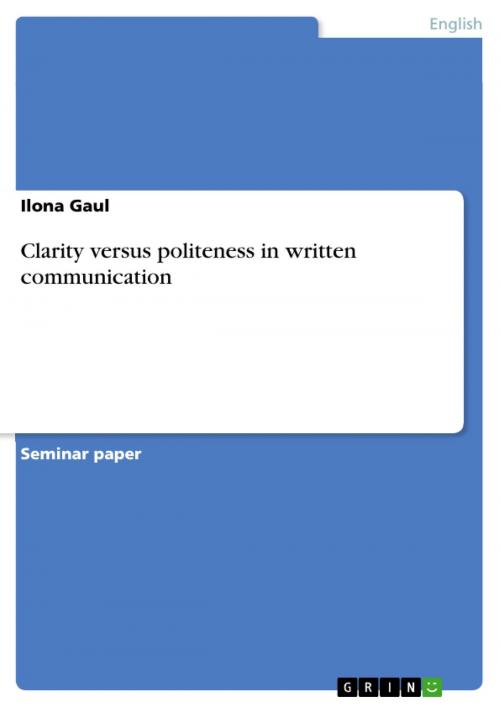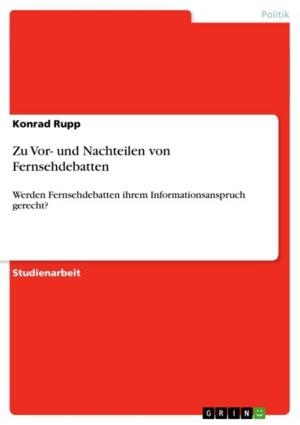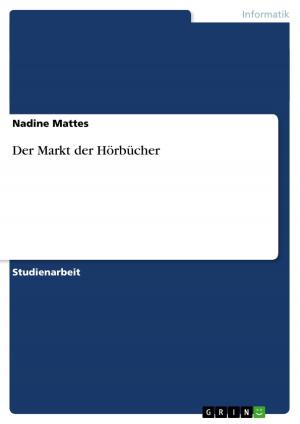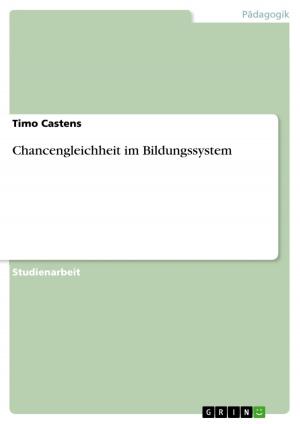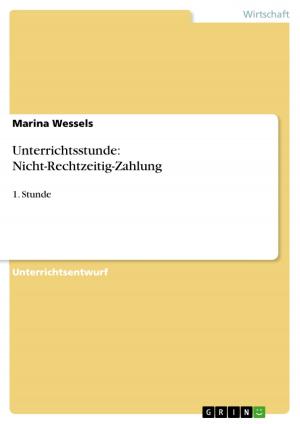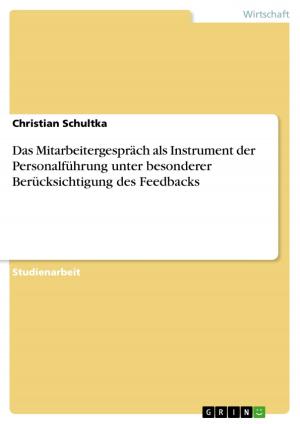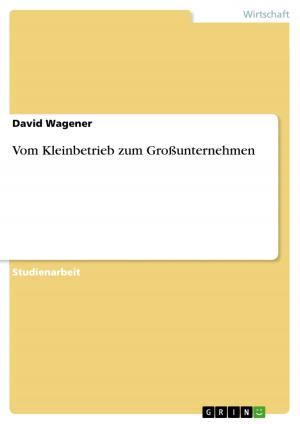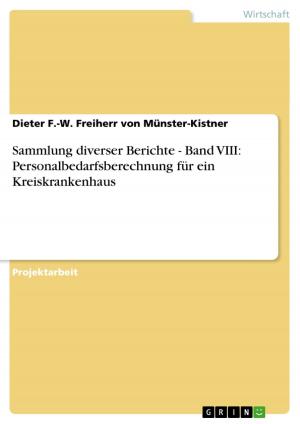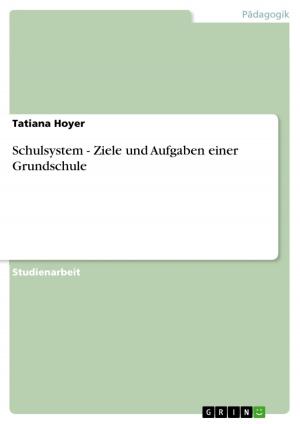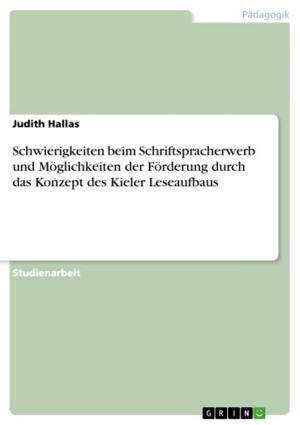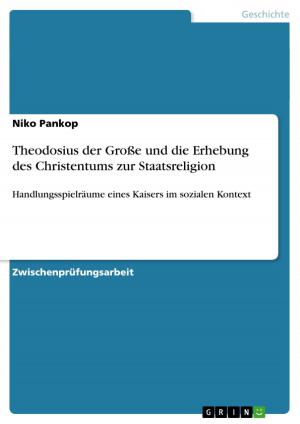| Author: | Ilona Gaul | ISBN: | 9783638493208 |
| Publisher: | GRIN Verlag | Publication: | April 20, 2006 |
| Imprint: | GRIN Verlag | Language: | English |
| Author: | Ilona Gaul |
| ISBN: | 9783638493208 |
| Publisher: | GRIN Verlag |
| Publication: | April 20, 2006 |
| Imprint: | GRIN Verlag |
| Language: | English |
Seminar paper from the year 2006 in the subject English Language and Literature Studies - Linguistics, grade: 1,3, University of Marburg (Institution für Anglistik und Amerikanistik), course: Hauptseminar 'Strategic Writing in English as a Second Language', 7 entries in the bibliography, language: English, abstract: The following paper seeks to be an empirical approach to the usage of clear and polite expressions in written communication. The material concerned are think- aloud-protocols, so-called TAPs, and respective letters written by students in their Hauptstudium who got the task to write to an imaginary guest professor and record their thoughts while doing this. The letters were first written in English (L2) and afterwards in German (L1) but since the main concept of politeness is very similar in these two languages and a detailed analysis of cultural differences would reach beyond the scope of this paper only the English letters are concerned here. The students were supposed to remind the professor of correcting their termpaper early because the credit was neeeded for the registration to their final exams. Obviously, this task requires to deal with the conflict between polite behaviour and a precise presentation of facts. As it will be shown it is on the one hand often not easy to be friendly and polite when one simultaneously wants to get an important message across. On the other hand there is the danger of creating a negative impression if one exaggerates politeness. Since I am one of the students who had to write an imaginary letter and especially since I already had to write similar letters in reality and am likely to have to do it again I am really interested in the study of politeness. The close relation between theory and practice here makes the topic very attractive. 32 letters were written and afterwards ranked into a quality scale ranging from high top to deep low. From each of these categories at least one letter will be picked out for a detailed analysis. The paper is based on the theoretical background of three different models of politeness by Lakoff, Leech and Brown and Levinson which have in common that they are all linked somehow to Grice's Cooperative Principle while Brown and Levinson's approach seems to be the most elaborate one. The four Gricean maxims have to be adhered to in a communicative act for the sake of clarity but as it will be shown they are often violated in favour of polite speech. All of these models can be criticized more or less but since the purpose of this paper is a strong focus on the empirical part those criticisms will not be taken into consideration here.
Seminar paper from the year 2006 in the subject English Language and Literature Studies - Linguistics, grade: 1,3, University of Marburg (Institution für Anglistik und Amerikanistik), course: Hauptseminar 'Strategic Writing in English as a Second Language', 7 entries in the bibliography, language: English, abstract: The following paper seeks to be an empirical approach to the usage of clear and polite expressions in written communication. The material concerned are think- aloud-protocols, so-called TAPs, and respective letters written by students in their Hauptstudium who got the task to write to an imaginary guest professor and record their thoughts while doing this. The letters were first written in English (L2) and afterwards in German (L1) but since the main concept of politeness is very similar in these two languages and a detailed analysis of cultural differences would reach beyond the scope of this paper only the English letters are concerned here. The students were supposed to remind the professor of correcting their termpaper early because the credit was neeeded for the registration to their final exams. Obviously, this task requires to deal with the conflict between polite behaviour and a precise presentation of facts. As it will be shown it is on the one hand often not easy to be friendly and polite when one simultaneously wants to get an important message across. On the other hand there is the danger of creating a negative impression if one exaggerates politeness. Since I am one of the students who had to write an imaginary letter and especially since I already had to write similar letters in reality and am likely to have to do it again I am really interested in the study of politeness. The close relation between theory and practice here makes the topic very attractive. 32 letters were written and afterwards ranked into a quality scale ranging from high top to deep low. From each of these categories at least one letter will be picked out for a detailed analysis. The paper is based on the theoretical background of three different models of politeness by Lakoff, Leech and Brown and Levinson which have in common that they are all linked somehow to Grice's Cooperative Principle while Brown and Levinson's approach seems to be the most elaborate one. The four Gricean maxims have to be adhered to in a communicative act for the sake of clarity but as it will be shown they are often violated in favour of polite speech. All of these models can be criticized more or less but since the purpose of this paper is a strong focus on the empirical part those criticisms will not be taken into consideration here.
